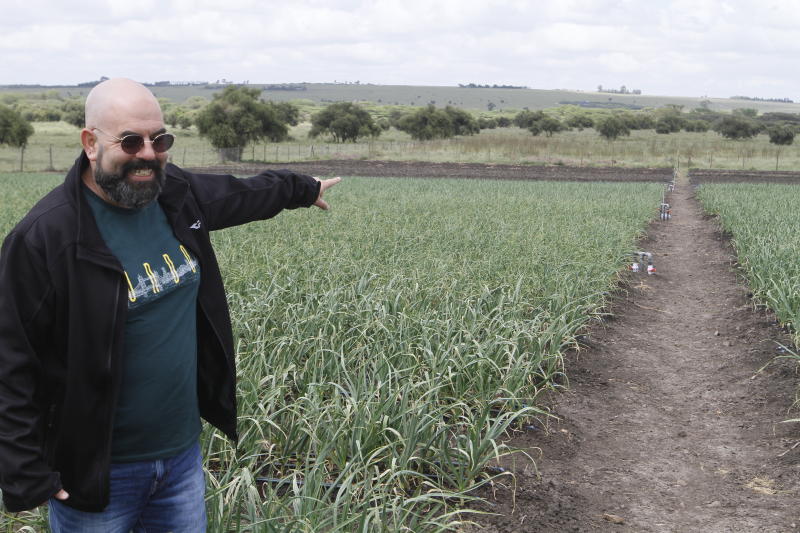Gilad Milo, a renowned musician, achieved widespread fame within Kenya primarily due to his hit song “Unajua,” a collaboration with Wendy Kimani. This romantic melody quickly went viral on YouTube, amassing an impressive 8 million views. Kenyans were pleasantly surprised by Gilad’s ability to fluently sing in Swahili, despite his foreign origins.
Amidst his rapid ascent in the music industry, Gilad has consistently embraced a philosophy of versatility. He has assumed diverse roles as a writer, PR specialist, diplomat, and vocalist, leading him to a realization that individuals need not confine themselves to a single pursuit. He passionately advocates that the world offers boundless opportunities for exploration and enjoyment, dispelling the notion of being relegated to an ordinary existence.
Drawing attention to Gilad’s journey, his success is intertwined with his involvement in the thriving Ole Raha garlic farm, situated in Kajiado County. The farm’s flourishing fortunes, Gilad recounts, emerged from the ground up—a laborious process involving clearing the land, soil analysis, plowing, and the implementation of efficient drip irrigation systems.

Gilad underscores the paramount importance of meticulous attention to detail in the pursuit of successful farming, particularly in the initial stages. He emphasizes that garlic thrives in warm, sun-drenched environments with regular watering, especially during its crucial early growth phase. The artist-turned-farmer exclusively employs fully matured bulbs as seeds to ensure rapid and healthy plant germination. Ole Raha Farm is home to two garlic varieties, the Rwanda Giant and Africa Giant, with a typical harvest period of four months.
Gilad acknowledges that potential threats from pests and diseases could diminish the harvest yield. As a countermeasure, vigilant monitoring and judicious application of pesticides become imperative. While garlic is inherently robust, Gilad cautions against the threat posed by red ants, which can consume its leaves. Thankfully, conventional pesticides can effectively eliminate this menace.
In terms of financial investment, Gilad estimates an initial cost ranging between Ksh 300,000 and Ksh 350,000, with the drip irrigation system constituting the most significant expense, amounting to $165,000. This investment, however, has the potential to yield substantial returns, with an anticipated harvest of up to 4 tons, each kilogram fetching 150 Kenyan Shillings in the market, culminating in a substantial sum of Ksh 600,000.
The thriving local market in Kenya anchors Gilad’s decision to focus on domestic sales, with the Ole Raha Farm expanding its scope to provide garlic seeds to fellow farmers. Furthermore, the farm aspires to diversify its offerings by venturing into the production of garlic paste in the foreseeable future.



